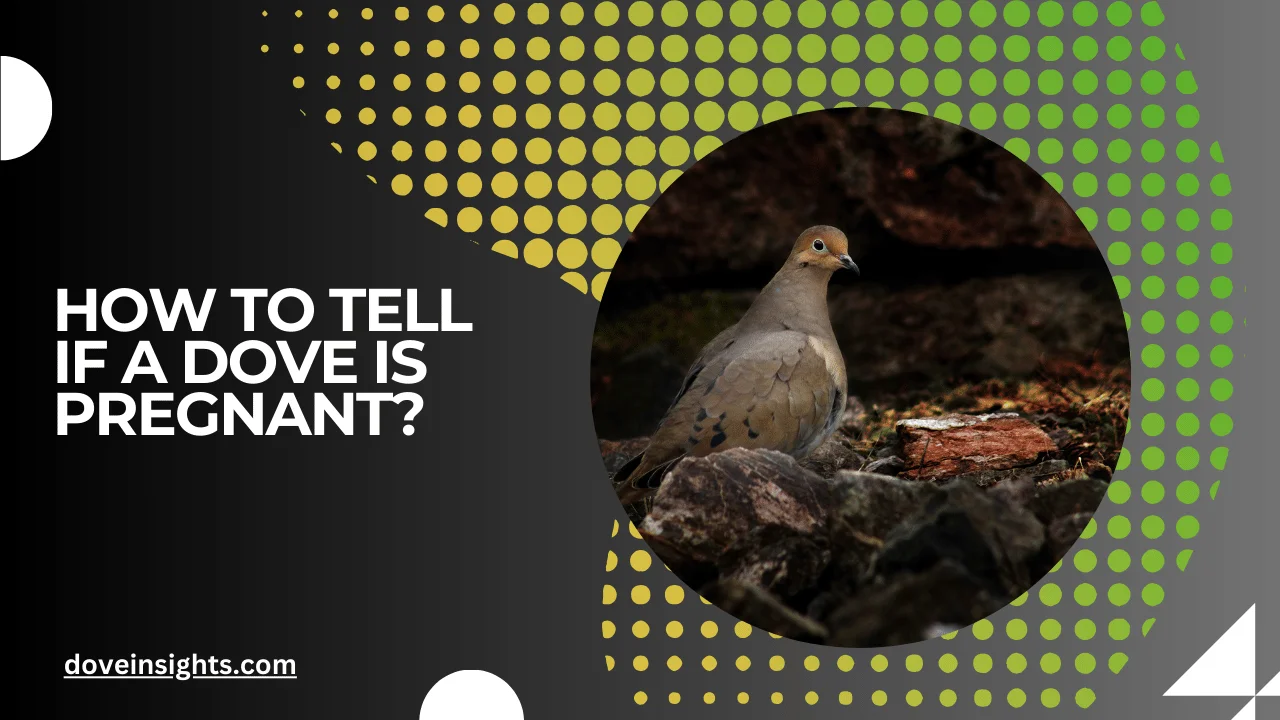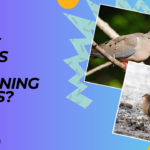Doves are often associated with peace, love, and fertility, making them fascinating creatures to observe, especially during their breeding season.
But for those who watch birds closely or care for them, identifying when a dove is “pregnant” or ready to lay eggs can be a unique challenge. Unlike mammals, birds don’t experience pregnancy in the traditional sense, but there are subtle signs that indicate a female dove is preparing to lay eggs.
Understanding these signs is not just about satisfying curiosity; it’s essential for ensuring their well-being and providing the right environment for nesting.
Whether you’re a bird enthusiast, a pet dove owner, or just someone intrigued by nature, learning how to tell if a dove is “pregnant” opens a window into the incredible process of avian reproduction.
In this guide, we’ll explore the behavioral, physical, and environmental changes that signal a dove is preparing to lay eggs, along with tips on supporting them during this critical time.
Contents
Understanding Dove Reproduction
Before identifying if a dove is pregnant, it’s important to understand their reproductive process:
- Egg-laying cycle: Female doves don’t experience pregnancy as mammals do. Instead, they form and lay eggs after mating.
- Breeding season: Doves are prolific breeders, often producing multiple clutches of eggs each year.
- Nesting behavior: Doves build simple nests where they lay one or two eggs at a time.
Recognizing the basics of dove reproduction helps set the stage for spotting the signs of egg-laying readiness.
Physical Signs of a Pregnant Dove
Female doves exhibit physical changes when preparing to lay eggs:
- Slight abdominal swelling: This is a subtle change, as the egg develops inside the bird.
- Increased food intake: Doves may eat more to prepare for the energy-intensive process of laying eggs.
- Changes in posture: Some doves adopt a more hunched posture due to the egg’s presence.
These physical signs, while not always obvious, provide key clues about their reproductive state.
Behavioral Changes in Pregnant Doves
Behavioral changes often indicate that a dove is preparing to lay eggs:
- Nesting activity: Female doves may gather twigs and other materials to construct or improve a nest.
- Quiet demeanor: Pregnant doves often become calmer and more focused on nesting activities.
- Pair bonding: If paired, doves may spend more time with their mate, engaging in mutual preening and bonding behaviors.
Behavioral shifts can offer valuable insights into the dove’s readiness for reproduction.
Environmental Factors and Support
Creating the right environment is essential for a dove preparing to lay eggs:
- Nest preparation: Provide suitable nesting materials like straw, twigs, or soft leaves.
- Minimize disturbances: Keep their surroundings calm to reduce stress and promote successful nesting.
- Nutritional support: Offer a balanced diet with calcium-rich foods to support eggshell formation.
A supportive environment ensures the dove’s health and the successful hatching of eggs.
Common Misconceptions About Dove Pregnancy

There are many myths surrounding doves and their reproductive habits:
- Pregnancy vs. egg-laying: Doves don’t experience pregnancy in the mammalian sense, which can lead to misunderstandings.
- Male and female roles: Both sexes participate in incubating the eggs and caring for the chicks.
- Egg-laying triggers: Factors like daylight hours and food availability influence breeding, not just mating.
Debunking these misconceptions fosters a better understanding of dove biology.
Conclusion
Understanding how to tell if a dove is pregnant—or more accurately, preparing to lay eggs—requires observing their physical, behavioral, and environmental changes.
From nesting behavior to subtle physical shifts, these signs offer a glimpse into the fascinating world of avian reproduction.
By providing the right care and environment, we can support doves during this critical time, whether they’re wild birds in your yard or cherished pets.
The more we learn about these gentle creatures, the more we can appreciate their resilience and unique place in the natural world.
FAQ’s
Do doves get pregnant?
Doves do not experience pregnancy like mammals. They lay eggs after mating.
What are the signs that a dove is about to lay eggs?
Look for slight abdominal swelling, nesting activity, and increased food intake.
How long does it take for a dove to lay eggs after mating?
Female doves usually lay eggs 5-7 days after mating.
What should I feed a dove preparing to lay eggs?
Provide a calcium-rich diet, including cuttlebone or fortified bird feed.
Can male doves help with nesting?
Yes, male doves often assist in building the nest and incubating the eggs.
How many eggs do doves typically lay?
Doves usually lay two eggs per clutch.








